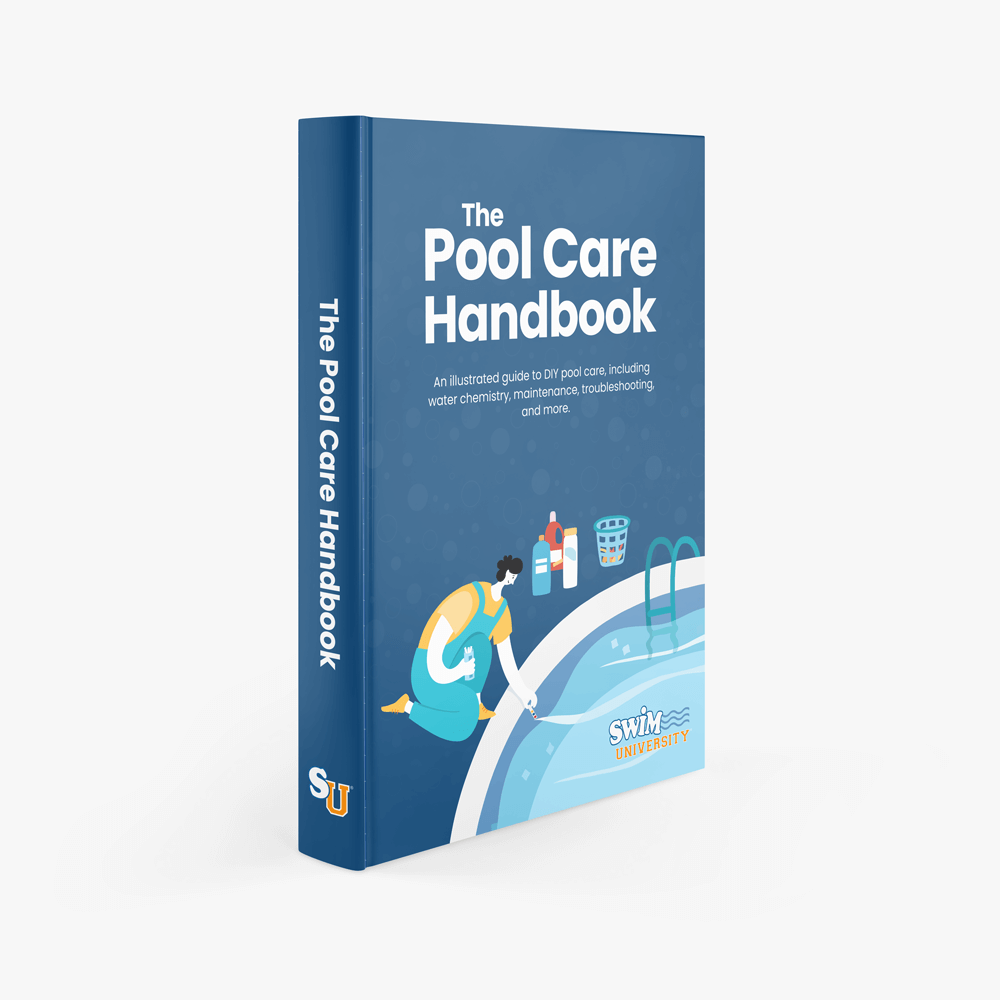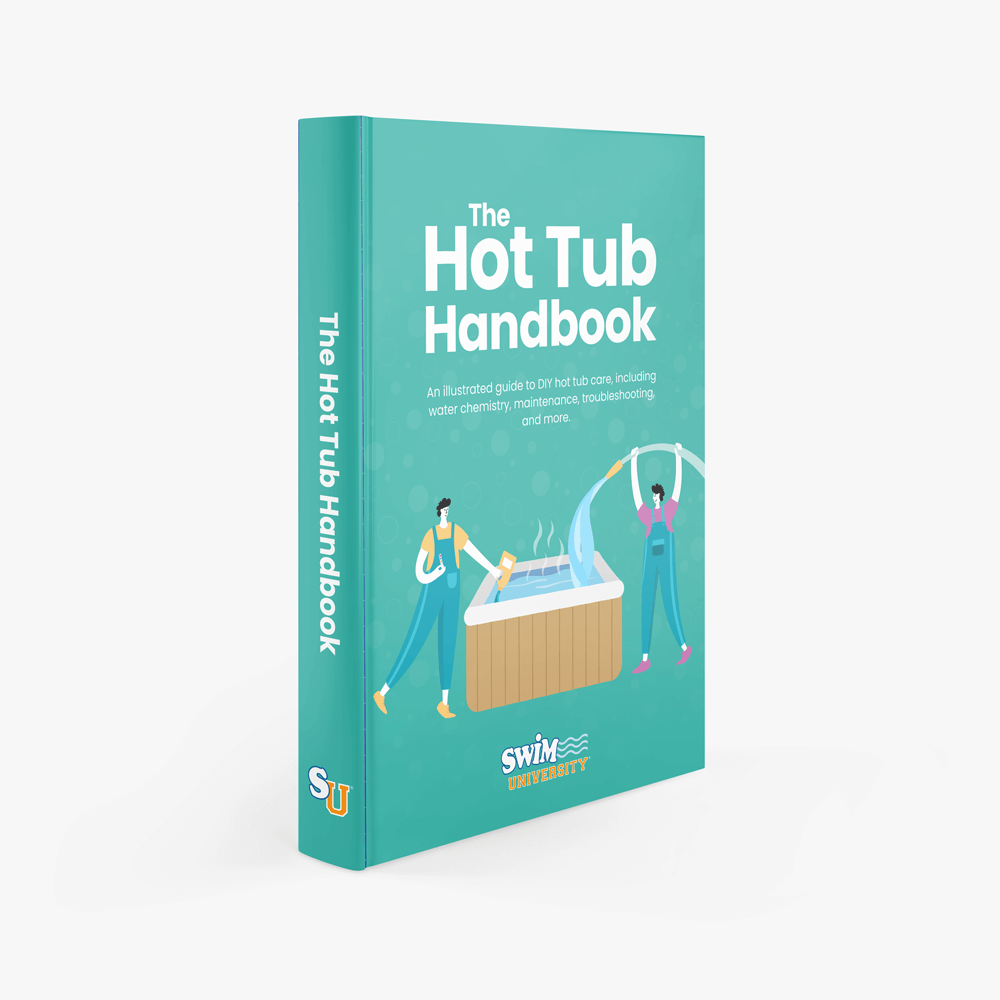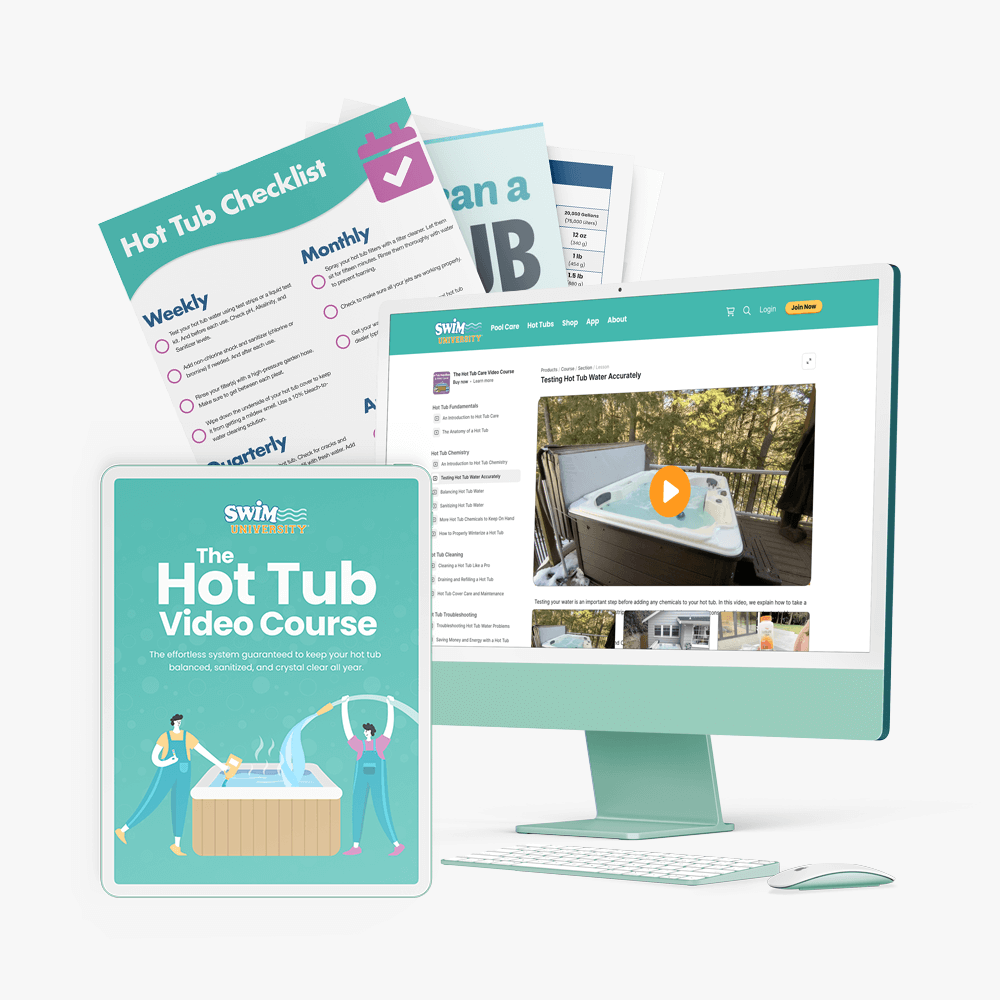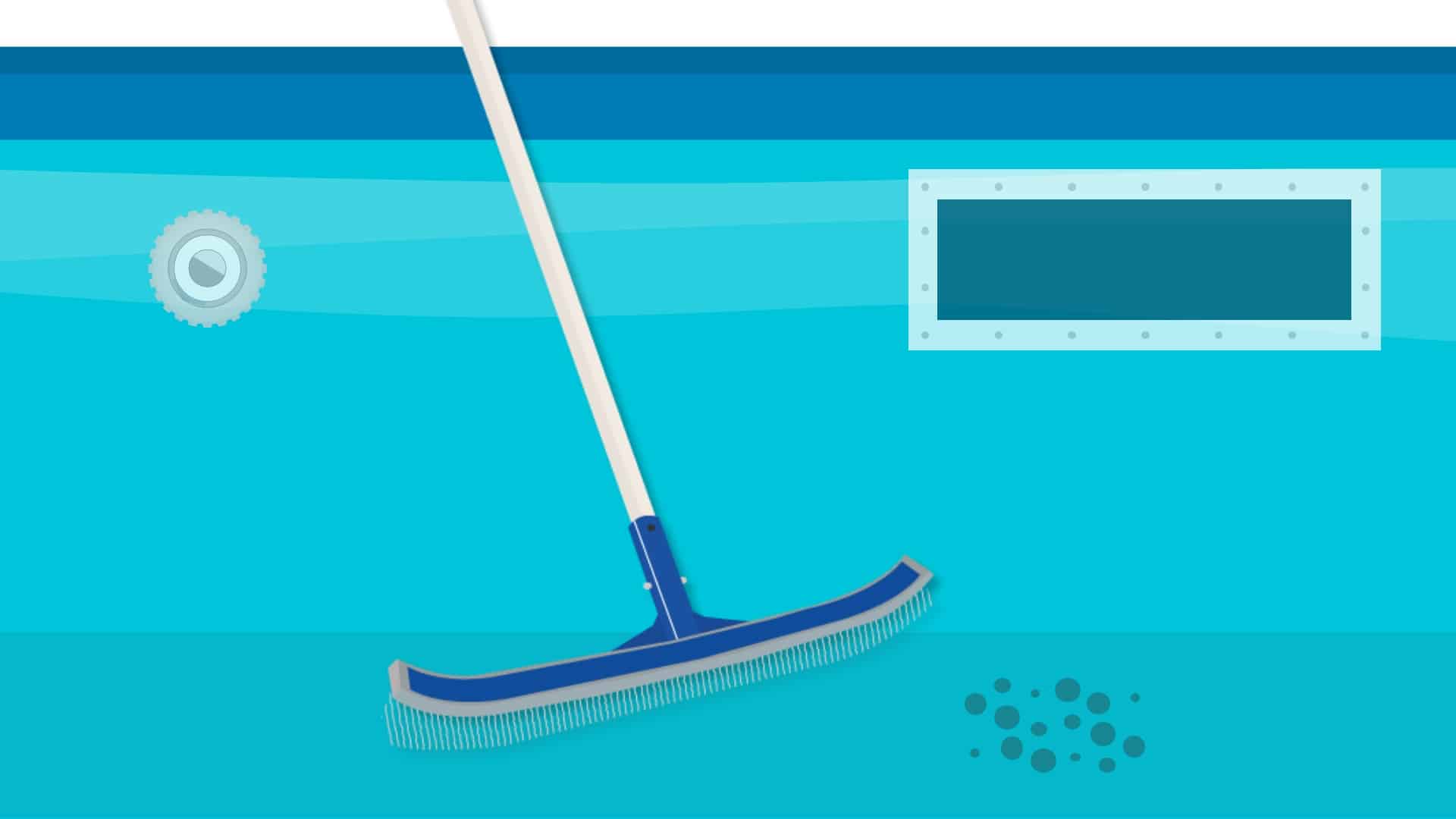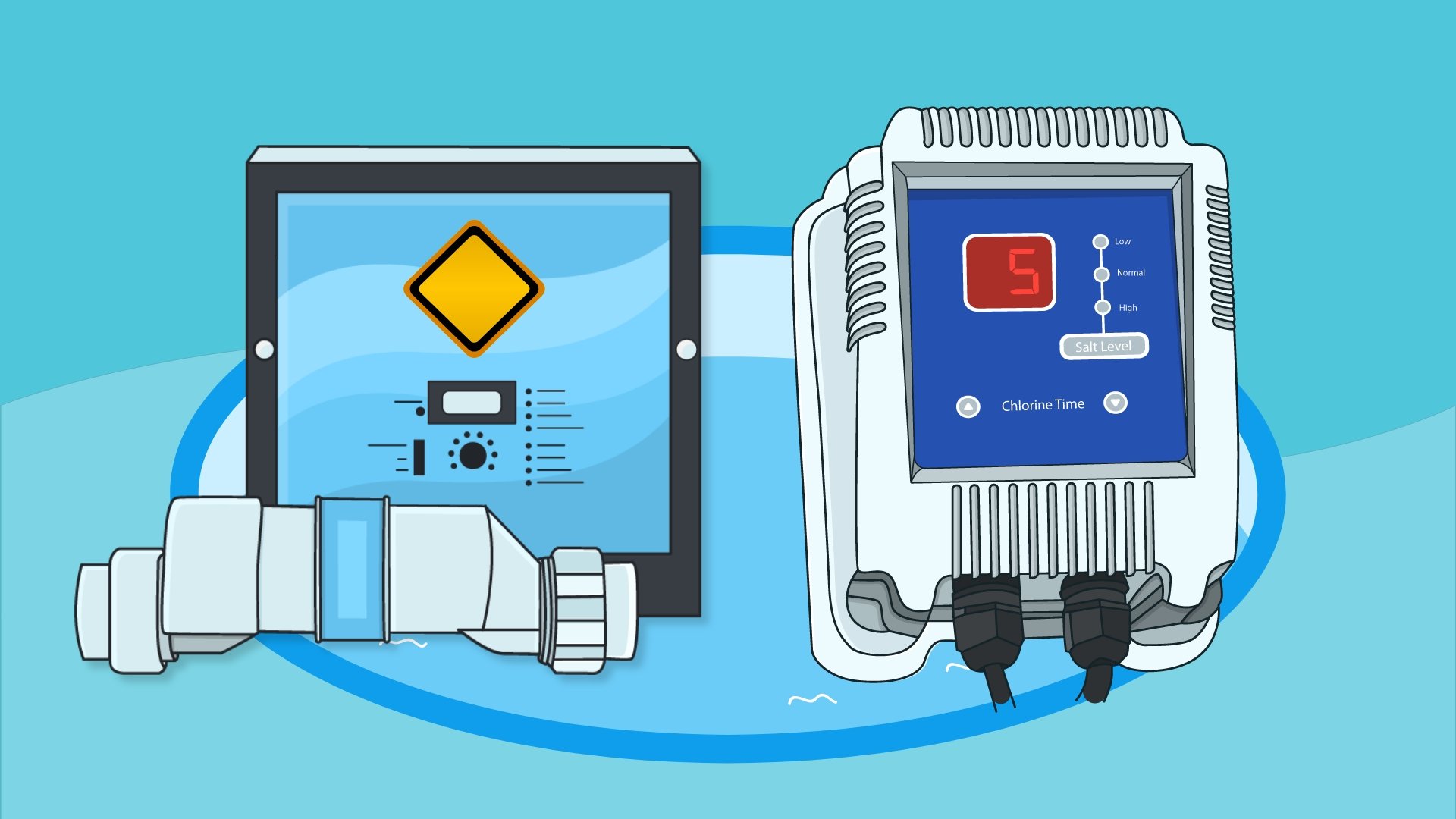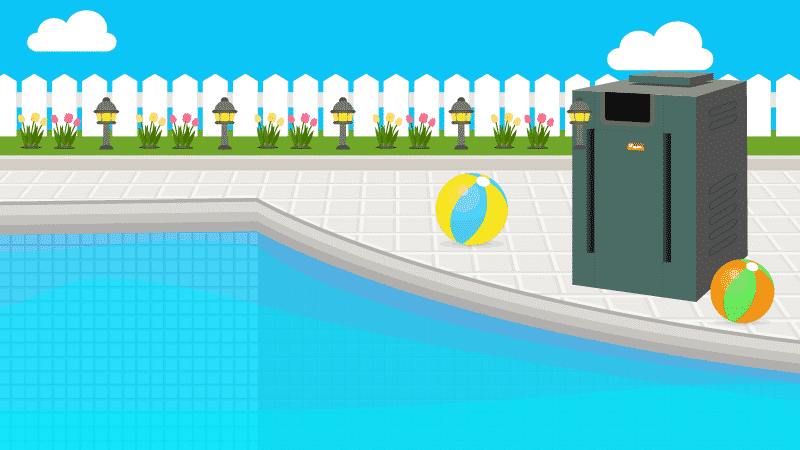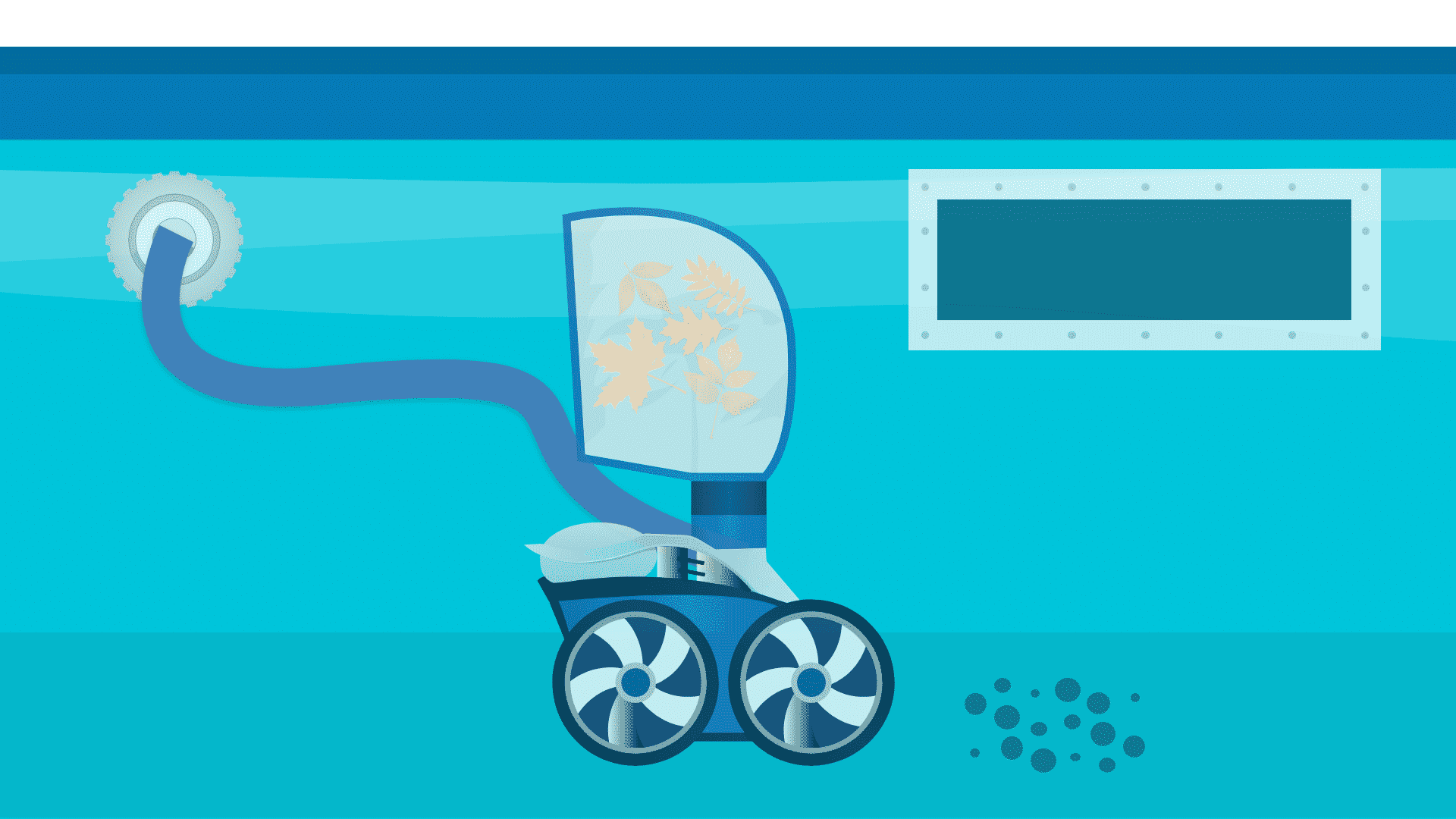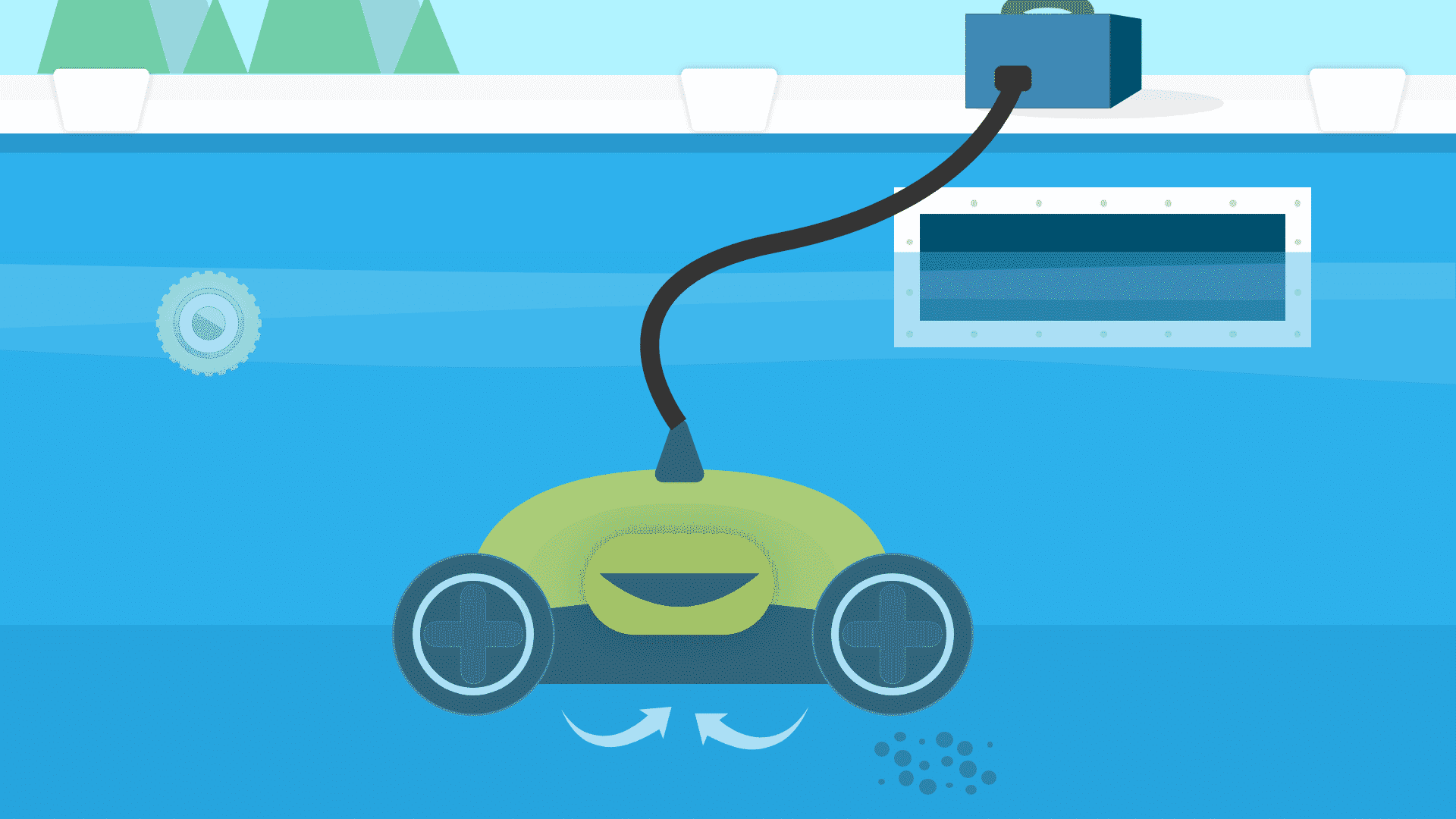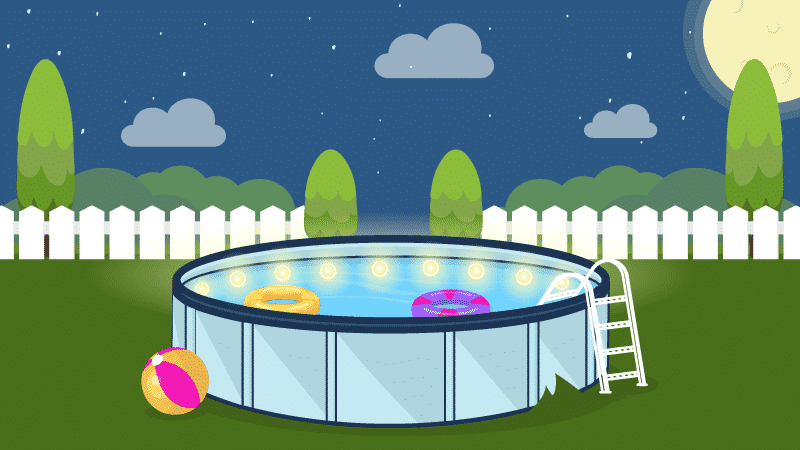How to Heat a Pool Super Fast and Crazy Affordably
Looking for the best way to heat up your pool? Maybe you want to open up your pool early and start swimming ASAP. Or perhaps you’d just like your water a little warmer throughout the swim season.
Three pool heaters can heat your pool: Solar, DIY options, and traditional pool heaters. So let’s dive into the best ways to heat your pool quickly and efficiently.
No matter which kind of heating method you use, your pool’s heat time depends on a few things:
- What type of pool you have.
- How much water it holds.
- Whether it’s insulated or not.
- How much sun you get.
Stop wasting time and money with confusing water chemistry and maintenance. Our effortless system guarantees to keep your pool balanced, sanitized, and crystal clear all year. Works for all pools including saltwater.
How to Heat Your Pool With Solar Pool Heaters
The sun is nature’s FREE pool water heater. Your pool water absorbs sunlight and warmth just by sitting out in the sun.
An average pool will heat up about 0.7° per hour under the noontime sun. But the downside to that sun? Evaporation.
Evaporation can cause the same pool to lose 5°F for every quarter inch of water evaporated.
Solar pool covers, aka solar blankets, are large sheets of insulating plastic that look like bubble wrap and lie on top of your pool water. They not only capture the energy of the sun, but they also keep heat in by reducing water evaporation, especially at night.
The heat your pool gains during the day are lost at night. A solar blanket keeps some of that heat from dissipating and cuts evaporation by about 95 percent.
When water evaporates from your pool, you also lose the chemicals in that water. A solar blanket can prevent 35 to 60 percent of your pool water chemicals from disappearing into thin air.
Depending on where you live, a solar cover may not keep the water as warm as an electric or gas heater. However, it still can reduce water evaporation and help retain heat.
Here are our picks for the best solar covers for any size pool.
Which color solar cover is best?
Clear solar covers allow more of the sun’s heat to penetrate the water and increase water temperature by about 15 degrees and prevent up to 95% of pool water and chemical evaporation. Dark blue solar covers are great for heat retention. So if you have a gas heater or pool heat pump, your heater won’t need to run as long with a dark blue cover.
If you have a large pool, or if you often swim, removing the solar blanket can be a little bit annoying. You can cut the solar blanket into smaller panels and remove the pieces one at a time.
Or it might be worth investing in a solar cover reel.
What’s a Liquid Solar Pool Cover?
These are made from a fatty alcohol substance that forms a thin layer on top of the water and helps prevent evaporation. You can’t see it, you can’t feel it, and it’s safe to swim in.
If you want to see a liquid solar pool cover in action, be sure to check out our other video.
Liquid solar covers are easier to use than a solar blanket; you’re just adding liquid to your pool instead of reeling in a blanket. But solar blankets are about 25 percent more effective at keeping heat and water in the pool.
Whether you use a liquid or a blanket solar cover, they help retain heat and stop evaporation, especially at night. Click here to learn more about liquid solar covers and how they work.
Yes, liquid solar covers actually work and quite well. While they don't attract the sun's heat to your pool water, they help reduce water evaporation at night to keep the heat in your water.
Now let’s talk about some next-level solar heating options. If you have an above ground pool, you may want to consider heating the water with a Solar Dome.
How to Use a Solar Dome to Heat Your Pool
A Solar Dome collects the sun’s rays and circulates your pool water through warming channels before returning it to your pool.
Solar domes can raise the temperature of your pool up to 10 degrees, especially over several sunny days.
They can be challenging to install and require some extra connectors if you’re trying to position it where there’s more sun. They’re also not cheap.
But aside from the initial purchase cost, it runs on solar — which means completely FREE heat for your pool.
If a solar dome is a little out of your budget or you’re feeling handy, you can try making your own, cheaper solar heater with a black irrigation hose and a sump pump.
If this option sounds interesting to you, there are many great DIY channels on YouTube showing you how to build your own black hose solar heater for under $100.
Want to learn even more about solar pool heaters? Click here!
How to Heat Your Pool with Gas or Electric Heaters
These are the most expensive pool heating options, but they’re the most powerful.
Using a Natural Gas or Propane Pool Heater
Pool water passes through your heater while a combustion chamber burns and warms the water before returning it to the pool.
Gas heaters are probably the most powerful heater option. They’re very efficient and will heat your pool quickly, especially if you live where temperatures are cooler.
However, it is not a cheap system to install. And you do have to pay for the gas to keep it running. Not to mention the maintenance and troubleshooting it requires.
The installation cost can be between $500 to $1500, depending on the situation. If you want to do some work yourself, it could potentially save you hundreds or thousands in costs. And running it will cost around $200 – $400 a month.
Using an Electric Pool Heat Pump
Pool heat pumps draw in warm air from the atmosphere and use that air to heat the pool. It’s a low-energy process that relies entirely on your outside temperature.
So, as long as the weather is warm enough (around 40 degrees or higher), pool heat pumps can be a good option.
The installation cost is between $500 to $1500. DIYers could potentially save you hundreds or thousands. And running it will cost around $100 – $200 a month.
Are Pool Heaters Worth It?
If you want to extend the pool season and have elderly folks using the pool, then they’re worth it. Personally, I think pool heaters are too expensive. I would just invest in a solar cover and enjoy swimming in cooler water.
If you want to see our favorite gas heater and heat pump brands, check our Pool Heater Comparison Guide.
And regardless of how you heat your pool, we recommend getting some type of surface protection — like a solar cover — so you don’t lose water and heat at night.
What is the Best Way to Heat a Swimming Pool?
The fastest way to heat your pool is to use a gas pool heater and a solar cover. It’s like heating up your coffee in the microwave and putting a lid on it.
No matter how you plan to heat your pool, you should at least have a solar cover (or liquid solar cover) to help you retain the heat. This conserves energy, saves you money, and keeps your pool heated longer.
3 Ways We Can Help With Your Pool
- The Pool Care Handbook: An illustrated guide to DIY pool care, including water chemistry, maintenance, troubleshooting, and more.
- The Pool Care Video Course: You’ll get 30+ step-by-step videos and a downloadable guide with everything you need to know about pool maintenance.
- The Pool Care App: Enter your water test results. Get a custom treatment plan. Know exactly what chemicals to add to keep your pool clear.




